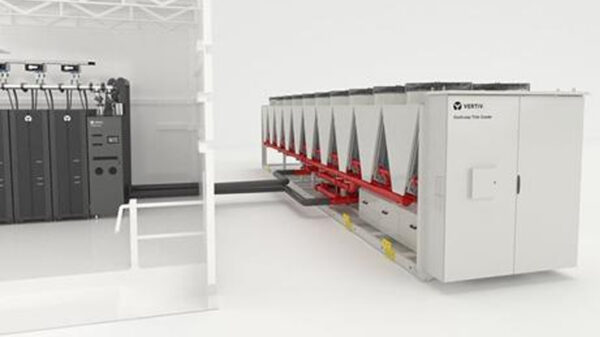By David Webster
President, APJ Enterprise Business
Dell EMC
Modernisation no longer means merely keeping pace with development: the increased speed of change has shifted your goals to equipping yourself with the tools to define your future. With the fourth industrial revolution, a new digital era has begun. “Mobile first” is increasingly the mantra of people and businesses. Joining them in the cloud is the Internet of Things, where data from a network of smart devices and sensors fuel analytics, which will deliver faster and more responsive solutions.
Just as the first three industrial revolutions created social changes that were almost unimaginable to earlier generations, the scale of the disruptions to our social and political systems that follow from the merging of the biological, physical and digital worlds will be unprecedented. Fear of the complexity is no longer a valid reason to delay digital transformation.
It’s not just the rise of Tesla, Airbnb, Uber and Netflix disrupting their industries. The ripples are everywhere. 3-D printing threatens 41 per cent of air cargo and 37 per cent of ocean container shipments, according to PwC. The finance industry is watching as Google and Apple moves into the payment sphere and let’s not even start with what has happened to the media.
You either become the disrupter or get disrupted, which is why many enterprises are acting now. A survey by IDC found that by the end of 2017, 60 per cent of the top 1000 enterprises in the Asia-Pacific region will make digital transformation the centre of their corporate strategy. It’s not just that new market entrants pose a threat to your business, your customers’ expectations have changed also dramatically. For example, they now expect a seamless mobile experience, especially in the Asia-Pacific, which has the largest number of mobile subscribers in the world. The Economist Intelligence Unit predicts that by 2019, there will be 117 mobile subscriptions for every 100 people in the region.
However, transformation doesn’t succeed through a grab bag of cloud systems and mobile apps. It’s easy to get lost in a sea of data that no one knows what to do with. The success stories will be those who unify all this potential in order to create actionable insights and arm themselves with systems that have the responsiveness to flex when needed.
In order to successfully innovate, we see enterprises needing to focus on three main areas for their digital transformation.
Engaging your workforce
In many countries, the millennial workforce now outnumbers the Gen Xs and Boomers and by 2020 they will make up half the global workforce. By 2025, they will account for three quarters of the workforce in Australia.
To attract the brightest minds of this generation, organisations need to empower them with the tools they need to get the job done. They want the experiences they’re accustomed to as a consumer to be replicated at work.
Theirs is a world is where technology is available everywhere and anywhere via mobile and cloud. A Google search is increasingly more likely to happen on a smartphone or tablet than a desktop or laptop device, while IDC reports that millennial-led companies are more likely to adopt a cloud-first IT strategy.
Pokémon Go might be a flash-in-the-pan, but it’s also the moment in time when augmented reality (AR) crossed the threshold into mainstream consciousness, albeit in primitive form. The role that technologies like it and virtual reality will play in the modern workforce will start to take shape in the coming years and organisations need to be positioned to adapt it as it becomes clearer.
Supporting Innovation
There’s no point throwing a shiny new facade on a frame that’s not built to support it and it’s not just a matter of enabling cloud and mobile functionality. The role of enterprise IT is changing, becoming more business-focused, with IT leaders striving to become more strategic.
However, the demands on the data centre are greater than ever. As our capacity for storage grows, so does our appetite for collecting data and the desire to process it to gain insight. The digital universe doubles every year and will reach 44 zettabytes by 2020. IT has to manage the demands of these legacy systems while driving cost savings that do not negatively impact performance.
To achieve a true digital transformation, companies must first modernise their data centres — leveraging the latest technologies, automating as much as possible and transforming them to become more efficient. Savings can be invested in next generation applications, systems and processes which drive agility, insight, engagement and opportunity, allowing businesses to remain competitive.
Changing How We Define Data Protection
Of course, you can’t change the rules of the game and expect security to automatically keep pace. The way we store and access information has changed, and so have the threats. With information being accessed from a range of locations and devices, and data moving between public, private and hybrid cloud environments, security strategy needs to change.
Around half of organisations believe their data in the cloud is not protected, according to a Vanson Bourne survey of IT decision makers. Further, only 20 per cent were very confident their data protection solution could keep pace with the speed and capabilities of flash arrays.
As with IT infrastructure, your security needs to be smarter and more agile, using intelligent systems that detect threats faster and immediately scale-up in response. Instead of security slowing down processes, as it has often been accused of in the past, it becomes a partner in moving forward.
It’s Time to Act
With the present rate of technological change, many enterprises may be daunted by the challenges. But the fourth industrial revolution has moved from theory to reality and not only is this digital transformation achievable, it’s an imperative in making your way forward. While it can be done in stages or all at once, the key is to work with partners who understand the need for a holistic approach and can help you act before the next disruption to your sector. This gives you a say in creating your future.
David Webster is President, APJ Enterprise Business for Dell EMC









































































































